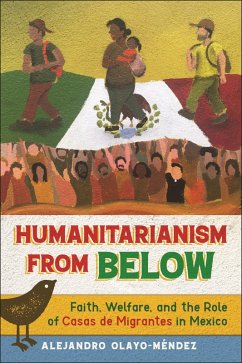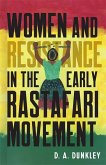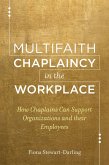Challenges the definition of humanitarian aid
Aside from being one of the most important migration corridors in the world, Mexico is becoming an immigrant destination itself, with more and more migrants deciding or needing to stay in the country after failing to enter the United States. In the absence of state aid, migrant shelters have emerged as an informal welfare system for migrants, asylum seekers, refugees, and deportees in Mexico. Largely run by faith-based humanitarian organizations, these shelters have grown significantly in recent years.
Humanitarianism from Below examines the significance of these casas de migrantes (migrant shelters) in the migration process in Mexico. The book also reviews the role of faith-based humanitarian organizations, whose engagement with migrants is perceived more as charity work than professional humanitarian work. The volume argues that faith-based humanitarian organizations' work challenges traditional understandings of what counts as humanitarian aid. It makes the case that in order to understand the full ecology of migration, we need to understand not only how large organizations like the Red Cross work, but also how these smaller and local entities with fewer resources interact with migrants on their journeys. Most migration research tends to focus on its impact within home countries or in destination contexts, rarely focusing on the actual migration process, including the interactions that influence the course of the migration journey itself. In conducting this research, Alejandro Olayo-Méndez traveled along migrant routes several times in order to gain knowledge about how migrants move and how they interact with the migrant shelters. He offers a detailed look at the experiences and challenges of casas de migrantes in Mexico, situating these faith-based shelters as an integral part of Mexico's humanitarian ecosystem.
Aside from being one of the most important migration corridors in the world, Mexico is becoming an immigrant destination itself, with more and more migrants deciding or needing to stay in the country after failing to enter the United States. In the absence of state aid, migrant shelters have emerged as an informal welfare system for migrants, asylum seekers, refugees, and deportees in Mexico. Largely run by faith-based humanitarian organizations, these shelters have grown significantly in recent years.
Humanitarianism from Below examines the significance of these casas de migrantes (migrant shelters) in the migration process in Mexico. The book also reviews the role of faith-based humanitarian organizations, whose engagement with migrants is perceived more as charity work than professional humanitarian work. The volume argues that faith-based humanitarian organizations' work challenges traditional understandings of what counts as humanitarian aid. It makes the case that in order to understand the full ecology of migration, we need to understand not only how large organizations like the Red Cross work, but also how these smaller and local entities with fewer resources interact with migrants on their journeys. Most migration research tends to focus on its impact within home countries or in destination contexts, rarely focusing on the actual migration process, including the interactions that influence the course of the migration journey itself. In conducting this research, Alejandro Olayo-Méndez traveled along migrant routes several times in order to gain knowledge about how migrants move and how they interact with the migrant shelters. He offers a detailed look at the experiences and challenges of casas de migrantes in Mexico, situating these faith-based shelters as an integral part of Mexico's humanitarian ecosystem.
Dieser Download kann aus rechtlichen Gründen nur mit Rechnungsadresse in A, D ausgeliefert werden.









